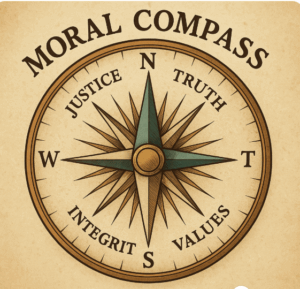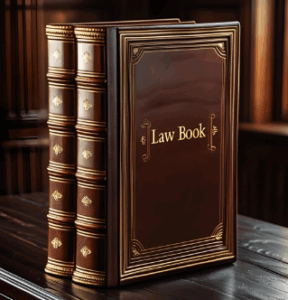Private Investigator Ethics

When you think of private investigators, Hollywood portrayals might come to mind—shadowy figures bending rules to get results. But in reality, Private Investigator Ethics form the cornerstone of legitimate investigative work. Far from operating in moral gray areas, professional PIs must navigate complex ethical landscapes with unwavering integrity.
Why Private Investigator Ethics Matter More Than Ever
Private Investigator Ethics aren’t just professional guidelines—they’re the foundation that separates legitimate investigators from those who compromise both their clients and the entire industry. In an era where privacy laws are evolving rapidly and public trust in investigative services is paramount, ethical conduct has never been more critical.
The private investigation profession operates at the intersection of sensitive personal information, legal matters, and individual rights. This unique position makes Private Investigator Ethics not merely advantageous but absolutely essential for maintaining credibility and avoiding severe legal consequences.
The Core Principles of Private Investigator Ethics
1. Honesty and Truthfulness: The Foundation
Private Investigator Ethics begin with absolute honesty in all business dealings. This means:
- Never misrepresenting facts during investigations
- Providing accurate, verifiable information to clients
- Avoiding unethical shortcuts that could damage reputation
- Presenting evidence without fabrication or exaggeration
2. Integrity: Consistency Under Pressure
Integrity in Private Investigator Ethics demands unwavering adherence to moral principles, even when not under direct observation. This includes:
- Maintaining ethical standards throughout all cases
- Collecting and documenting evidence properly
- Remaining truthful even when it’s financially disadvantageous
- Upholding professional standards consistently
3. Confidentiality: The Sacred Trust
Perhaps the most crucial aspect of Private Investigator Ethics is protecting client privacy. This encompasses:
- Safeguarding sensitive information with extreme care
- Sharing client details only with authorized individuals
- Adhering to data protection regulations
- Maintaining discretion in all investigative actions
4. Objectivity: Impartial Investigation
Private Investigator Ethics require approaching all cases without bias:
- Evaluating evidence free from personal beliefs
- Avoiding conflicts of interest
- Disclosing potential conflicts to clients
- Maintaining professional judgment over personal interests
Legal Boundaries: Where Private Investigator Ethics Meet the Law

Understanding legal limitations is crucial for Private Investigator Ethics. Private investigators are strictly prohibited from:
Illegal Activities That Violate Private Investigator Ethics:
- Illegal entry or trespassing – Breaking into private property
- Unauthorized communication interception – Wiretapping or hacking
- Document forgery – Fabricating evidence or falsifying documents
- Harassment or intimidation – Threatening or excessively surveilling subjects
- Unauthorized access to protected records – Medical records, financial information, private communications
The consequences of violating Private Investigator Ethics through illegal activities are severe:
- Criminal charges and imprisonment
- Significant fines ($10,000-$50,000 per violation)
- License revocation or suspension
- Civil lawsuits
- Inadmissible evidence in court
Common Ethical Dilemmas in Private Investigation

Private Investigator Ethics are tested most rigorously in complex situations where competing interests clash:
The Unfaithful Spouse Dilemma
When investigating suspected infidelity, Private Investigator Ethics require balancing:
- Client’s right to know the truth
- Subject’s right to privacy
- Potential harm to all parties involved
- Professional obligation to report findings accurately
Corporate Misconduct Cases
Private Investigator Ethics become complex when uncovering corporate wrongdoing:
- Protecting whistleblower identity
- Serving public interest versus client interest
- Ensuring proper legal channels are followed
- Maintaining objectivity in reporting
Missing Person Investigations
Private Investigator Ethics challenge investigators when:
- Located individuals don’t want to be found
- Family members demand closure
- Adult autonomy conflicts with family wishes
- Balancing competing rights and interests
The Decision-Making Framework for Private Investigator Ethics
Professional Private Investigator Ethics require structured decision-making processes:
1. Define Ethical Boundaries
Establish clear guidelines before taking on cases
2. Gather Complete Information
Make decisions based on thorough fact-finding
3. Identify All Stakeholders
Consider impacts on clients, subjects, and society
4. Evaluate Potential Outcomes
Assess legal, ethical, and professional consequences
5. Document the Process
Maintain transparency and accountability
6. Seek Collaborative Input
Consult with peers or ethics committees when needed
The Consequences of Compromising Private Investigator Ethics

Violations of Private Investigator Ethics create cascading negative effects:
Professional Consequences:
- Loss of professional license
- Damage to reputation
- Loss of client trust
- Industry-wide scrutiny
Legal Ramifications:
- Criminal charges
- Civil lawsuits
- Evidence inadmissibility
- Financial penalties
The Ripple Effect:
When one investigator compromises Private Investigator Ethics, it affects the entire profession’s credibility and can lead to increased regulatory oversight for all practitioners.
Building a Strong Ethical Foundation
Private Investigator Ethics aren’t just about avoiding problems—they’re about building a sustainable, trustworthy practice:
Professional Development
- Continuous education on evolving privacy laws
- Regular ethics training
- Staying current with industry standards
- Participating in professional associations
Client Education
- Transparent communication about legal boundaries
- Clear contracts outlining ethical limitations
- Informed consent processes
- Setting realistic expectations
Industry Collaboration
- Supporting professional associations
- Participating in ethics committees
- Mentoring new investigators
- Promoting industry standards
The Future of Private Investigator Ethics
As privacy laws evolve and technology advances, Private Investigator Ethics must adapt:
Emerging Challenges:
- Digital privacy rights
- Social media investigations
- AI and surveillance technology
- Cross-border investigations
Evolving Standards:
- Enhanced data protection requirements
- Stricter consent protocols
- Increased transparency obligations
- Greater client education responsibilities
Conclusion: Ethics as Your Moral Compass
Private Investigator Ethics serve as more than professional guidelines—they’re the moral compass that guides every decision, every case, and every client interaction. In a profession where trust is the ultimate currency and reputation is everything, ethical conduct isn’t optional—it’s essential.
The private investigation industry’s future depends on practitioners who understand that Private Investigator Ethics aren’t constraints on their work but the foundation that enables legitimate, effective, and respected investigative services. By maintaining unwavering commitment to ethical principles, private investigators not only protect themselves and their clients but also preserve the integrity of a profession that serves justice and truth within the bounds of law and respect for individual rights.
Remember: Private Investigator Ethics aren’t just about following rules—they’re about building a practice that stands the test of time, serves clients effectively, and contributes positively to society. In the complex world of private investigation, your ethical compass is your most valuable tool.
Reference
What Amazing Things Private Investigator Actually Do? The Ultimate Guide
harborcompliance.com
Private Investigator License Requirements by State | Harbor Compliance | www.harborcompliance.com
iapp.org
Emerging trends, insights from public enforcement of US state privacy laws – IAPP
nationalprivateinvestigators.co.uk
Ethics in Private Investigations: What You Need To Know
investigatesc.com
Ethics in Private Investigation: Principles and Practices – Stillinger …
c4sem.org
Ethics in Private Investigation: – c4sem
oig.hhs.gov
Fraud & Abuse Laws | Office of Inspector General | Government Oversight
polonious-systems.com
7 Strategies for Conducting Investigations on Ethical Dilemmas – Polonious
michiganstateuniversityonline.com
Ethical Decision Making: A Six Step Process and Guide – Michigan State University
wad.net
CODE OF ETHICS – World Association of Detectives
oncalllegal.com
What Information Can a Private Investigator Find? (2025)
files.secure.website
Questions and Answers Chapter 493
professionallicensedefensellc.com
New York Private Investigator License Defense – Lento Law Firm
wmtxlaw.com
Risks of Hiring a Private Investigator for Child Custody Cases – Warren &
